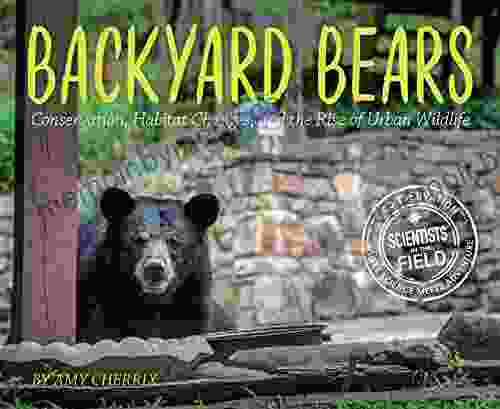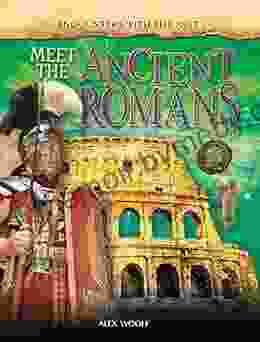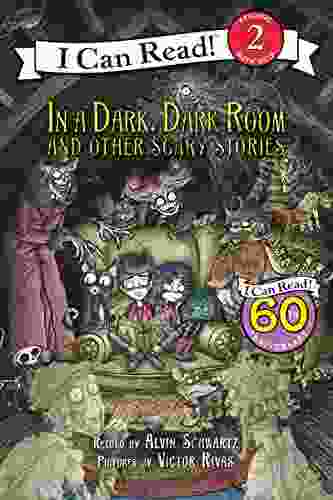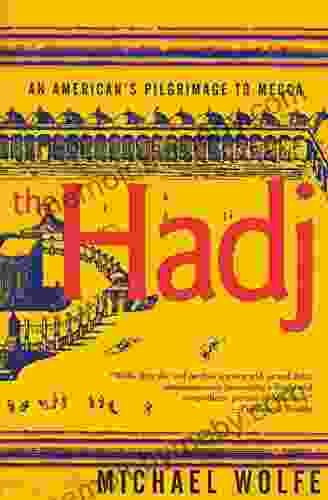Meet the Ancient Romans: Encounters with the Past

The ancient Roman civilization is one of the most fascinating and influential in human history. From its humble beginnings as a small city-state in central Italy, Rome grew to become a vast empire that spanned much of Europe, North Africa, and the Middle East. For over 500 years, the Roman Empire was a beacon of civilization, producing some of the greatest minds and achievements in history.
The History of Ancient Rome
The history of ancient Rome can be divided into three main periods: the Kingdom (753-509 BC),the Republic (509-27 BC),and the Empire (27 BC-476 AD).
5 out of 5
| Language | : | English |
| File size | : | 15673 KB |
| Text-to-Speech | : | Enabled |
| Screen Reader | : | Supported |
| Enhanced typesetting | : | Enabled |
| Word Wise | : | Enabled |
| Print length | : | 73 pages |
| Lending | : | Enabled |
The Kingdom
The Kingdom was founded by Romulus and Remus, twin brothers who were raised by a wolf. According to legend, Romulus killed Remus and became the first king of Rome. The Kingdom was a period of rapid growth for Rome, and it soon became the dominant power in central Italy.
The Republic
The Republic was established after the overthrow of the monarchy in 509 BC. The Republic was a time of great political and social change, and it saw the rise of some of Rome's most famous leaders, including Julius Caesar and Augustus Caesar.
The Empire
The Empire was established by Augustus Caesar in 27 BC. The Empire was a period of great prosperity and expansion, and it saw the construction of some of Rome's most famous landmarks, including the Colosseum and the Pantheon. The Empire also saw the rise of Christianity, which would eventually become the official religion of the Roman Empire.
The Culture of Ancient Rome
The culture of ancient Rome was a complex and sophisticated blend of Greek and Etruscan influences. The Romans were a highly literate people, and they produced a vast body of literature, including history, poetry, and drama. They were also skilled artists and architects, and they created some of the most beautiful and enduring works of art in history.
Religion
The Romans were a polytheistic people, and they worshipped a wide variety of gods and goddesses. The most important gods were Jupiter, the king of the gods; Juno, the queen of the gods; and Minerva, the goddess of wisdom and war. The Romans also believed in a number of lesser gods and spirits, including the Lares, the household gods, and the Penates, the gods of the pantry.
Society
Roman society was highly stratified, with the patricians, or upper class, at the top and the plebians, or common people, at the bottom. The patricians were the descendants of the original Roman families, and they held most of the political power. The plebians were the majority of the population, and they worked as farmers, artisans, and merchants.
Education
The Romans placed a great value on education, and they established a system of public schools that was available to all citizens. The schools taught a variety of subjects, including reading, writing, arithmetic, and history. The Romans also had a number of private schools, which were attended by the children of the wealthy.
Art and Architecture
The Romans were skilled artists and architects, and they created some of the most beautiful and enduring works of art in history. The Romans were particularly известны for their architecture, and they built some of the most iconic structures in the world, including the Colosseum, the Pantheon, and the Roman Forum.
The Achievements of Ancient Rome
The ancient Romans made a number of significant achievements in a variety of fields, including:
Law
The Romans developed a sophisticated system of law that was based on the principles of justice and equality. The Roman legal system is the foundation of many modern legal systems, and it is still used in many countries today.
Government
The Romans developed a system of government that was based on the principles of democracy and representation. The Roman government was one of the most advanced in the ancient world, and it served as a model for many other governments.
Engineering
The Romans were skilled engineers, and they built a vast network of roads, bridges, and aqueducts. The Roman engineering feats are some of the most impressive in history, and they continue to be used today.
Military
The Romans were a powerful military force, and they conquered a vast empire. The Roman military was one of the most disciplined and effective in the ancient world, and it played a key role in the rise of the Roman Empire.
The Legacy of Ancient Rome
The legacy of ancient Rome is immense. The Romans made significant contributions to a wide variety of fields, including law, government, engineering, and military. The Roman Empire was one of the most powerful and influential in history, and it left a lasting legacy that can still be seen today.
The ancient Roman civilization is one of the most fascinating and influential in human history. The Romans made significant contributions to a wide variety of fields, and their legacy can still be seen today. If you are interested in learning more about the ancient Romans, I encourage you to read the book Meet the Ancient Romans: Encounters with the Past. This book provides a comprehensive overview of Roman history, culture, and achievements.
5 out of 5
| Language | : | English |
| File size | : | 15673 KB |
| Text-to-Speech | : | Enabled |
| Screen Reader | : | Supported |
| Enhanced typesetting | : | Enabled |
| Word Wise | : | Enabled |
| Print length | : | 73 pages |
| Lending | : | Enabled |
Do you want to contribute by writing guest posts on this blog?
Please contact us and send us a resume of previous articles that you have written.
 Book
Book Novel
Novel Page
Page Chapter
Chapter Text
Text Story
Story Genre
Genre Reader
Reader Library
Library Paperback
Paperback E-book
E-book Magazine
Magazine Newspaper
Newspaper Paragraph
Paragraph Sentence
Sentence Bookmark
Bookmark Shelf
Shelf Glossary
Glossary Bibliography
Bibliography Foreword
Foreword Preface
Preface Synopsis
Synopsis Annotation
Annotation Footnote
Footnote Manuscript
Manuscript Scroll
Scroll Codex
Codex Tome
Tome Bestseller
Bestseller Classics
Classics Library card
Library card Narrative
Narrative Biography
Biography Autobiography
Autobiography Memoir
Memoir Reference
Reference Encyclopedia
Encyclopedia Rebecca Felix
Rebecca Felix Ali Velez Alderfer
Ali Velez Alderfer Emma Randall
Emma Randall Joachim C Fest
Joachim C Fest Amelia Morris
Amelia Morris Alex White
Alex White Amy Hardison
Amy Hardison Jake Bright
Jake Bright Angie D Watson
Angie D Watson Alexis C Bunten
Alexis C Bunten Allan R Millett
Allan R Millett Alison Mccauley
Alison Mccauley John Cena
John Cena Alice Borchardt
Alice Borchardt American College Of Veterinary Behaviorists
American College Of Veterinary Behaviorists Allen Carr
Allen Carr Alice Shalvi
Alice Shalvi Eileen Markey
Eileen Markey Camille Glenn
Camille Glenn Alexandra Wolff
Alexandra Wolff
Light bulbAdvertise smarter! Our strategic ad space ensures maximum exposure. Reserve your spot today!
 Junichiro TanizakiFollow ·12.2k
Junichiro TanizakiFollow ·12.2k Edward BellFollow ·18.1k
Edward BellFollow ·18.1k Brent FosterFollow ·4.9k
Brent FosterFollow ·4.9k Dean ButlerFollow ·19.4k
Dean ButlerFollow ·19.4k Fabian MitchellFollow ·7.6k
Fabian MitchellFollow ·7.6k Ted SimmonsFollow ·8.1k
Ted SimmonsFollow ·8.1k Ray BlairFollow ·11k
Ray BlairFollow ·11k Alexander BlairFollow ·10.6k
Alexander BlairFollow ·10.6k

 Robert Reed
Robert ReedConservation Habitat Changes And The Rise Of Urban...
As urban areas continue to expand, wildlife...

 W. Somerset Maugham
W. Somerset MaughamRide the Waves: The Ultimate Guide to Surfing Indonesia...
Are you ready to embark on an unforgettable...

 Arthur Conan Doyle
Arthur Conan DoyleThe Widow, the Priest, and the Octopus Hunter: A Literary...
Prologue: A Tapestry...

 Fernando Bell
Fernando BellRide the Waves of Adventure: The Ultimate Guide to...
Unveiling the Surfing Paradise of Peru For...
5 out of 5
| Language | : | English |
| File size | : | 15673 KB |
| Text-to-Speech | : | Enabled |
| Screen Reader | : | Supported |
| Enhanced typesetting | : | Enabled |
| Word Wise | : | Enabled |
| Print length | : | 73 pages |
| Lending | : | Enabled |
















